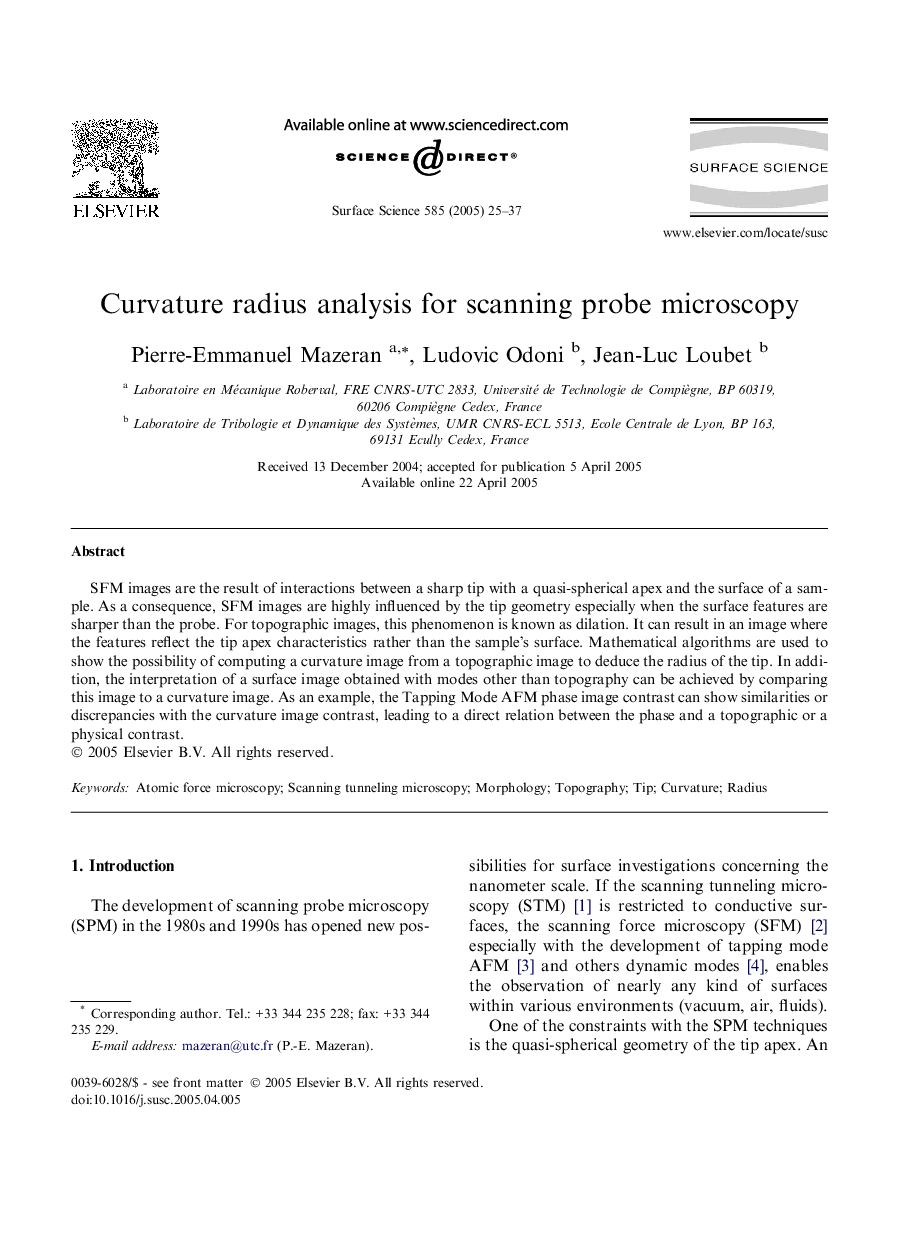| Article ID | Journal | Published Year | Pages | File Type |
|---|---|---|---|---|
| 9595182 | Surface Science | 2005 | 13 Pages |
Abstract
SFM images are the result of interactions between a sharp tip with a quasi-spherical apex and the surface of a sample. As a consequence, SFM images are highly influenced by the tip geometry especially when the surface features are sharper than the probe. For topographic images, this phenomenon is known as dilation. It can result in an image where the features reflect the tip apex characteristics rather than the sample's surface. Mathematical algorithms are used to show the possibility of computing a curvature image from a topographic image to deduce the radius of the tip. In addition, the interpretation of a surface image obtained with modes other than topography can be achieved by comparing this image to a curvature image. As an example, the Tapping Mode AFM phase image contrast can show similarities or discrepancies with the curvature image contrast, leading to a direct relation between the phase and a topographic or a physical contrast.
Related Topics
Physical Sciences and Engineering
Chemistry
Physical and Theoretical Chemistry
Authors
Pierre-Emmanuel Mazeran, Ludovic Odoni, Jean-Luc Loubet,
